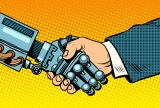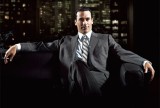The Cyber Age Demands a New Understanding of War—but We’d Better Hurry
Is It Too Late to Resist the Techno-Gods That Steal Data and Topple Skyscrapers?
It seems highly reckless to prod into flight Hegel’s Owl of Minerva—the goddess of wisdom and war—for an assessment of war in a cyber age that is barely 30 years old.
You will not find it in the Oxford English Dictionary, but “cyberwar” made its first inauspicious appearance in 1987 when an anonymous editor from Omni—Bob Guccione’s other magazine—attached the neologism as a title for an article by Owen Davies, an Omni editor. Although he never used the word or developed the idea of cyberwar, Davies pretty much nailed the coming …










